While Half-Life: Alyx isn't on Linux (yet—it's coming), Valve are still trying to get it working as good as possible with Steam Play Proton and a new update for SteamVR is up.
This is a SteamVR Beta, so you're going to want to opt into that if you're not already. How to do that? Simply search for SteamVR in your Steam Library (it's in the Tools section), right click on it and go to Properties and then to the Beta tab to select it from the dropdown:
Here's the essential HL:A fixes in SteamVR Beta 1.11.1:
Compositor:
Linux:
- Fixed a memory leak in HL:A loading screens
- Fixed a GPU memory leak in HL:A loading screens on Linux based system
- Fixed a HL:A crash
There were a lot of reports of it crashing, so hopefully this will make it a smoother experience until the expected Linux version with Vulkan sometime later. Nice to see Valve react so quickly though for Linux gamers who own a VR kit! Considering the high price, seeing such support is nice.
More was added to this SteamVR beta too including microphone volume and mute controls in the dashboard, a new audio mirroring beta feature, a new "Far" dashboard position option and other bug fixes.
See the SteamVR changelog here.
I got an Index 1 week+ ago and I am very disappointed in SteamVR on Linux overall.
I really hope they will fix it. I experience frequent system freezes, bugs in Steam VR Home (left eye has no shadows, skybox, etc) and games refusing to launch, especially Proton games.
It's been a while since I booted into my Windows partition but lately I was kinda forced to switch back to game on that one, which is very sad. And unfortunately all my VR games will likely count as Windows sales.
You wrote pretty much the same message before. Is there any point to that? Especially since everybody could have easily figured out what the state of SteamVR on Linux is.
Imagine spending 1000$ on a device that doesn't work very well on Linux because nvidia don't give us support while we spent 500$ or more for a GTX10xx. That's the point, nvidia pls.
So he needs to inform us twice that he didn't pay attention before spending $1000?
Also, I'm running on Nvidia and while it has specific issues with reprojection, it can still be made to work reasonable well. It takes a bit of research and configuration, but nothing that hasn't been know for a year.
Imagine spending 1000$ on a device that doesn't work very well on Linux because nvidia don't give us support while we spent 500$ or more for a GTX10xx. That's the point, nvidia pls.
So he needs to inform us twice that he didn't pay attention before spending $1000?
Also, I'm running on Nvidia and while it has specific issues with reprojection, it can still be made to work reasonable well. It takes a bit of research and configuration, but nothing that hasn't been know for a year.
I see that many users have to ask a company to develop a solution. It would be good to criticize nvidia and use twitter but en masse. The problem is that each one in linux goes to its own ball.
Last edited by cusa123 on 25 Mar 2020 at 5:56 pm UTC
I really hope the vulkan version is not far away. It would also be very great to have a Linux build of Hammer 2.
I'll have to see how it performs with newer drivers now that Debian unstable has updated.
Still waiting on my ship date.
Any AMD Index owners here to weigh in? As a previous Nvidia user I am not surprised in the slightest.
Still waiting on my ship date.
I got the second mail yesterday in the evening for payment and shipment. :)
Now waiting for the delivery.
Didn't hear a single bad word about Alyx.
So looking forward to this.
Can't wait for the native Vulkan version. :D
I do know that Elite ran at about 100fps less than it does on Windows, and in VR, that kills your stomach when you try to maneuver in a space station!.
Elite Dangerous? since when does that run on linux?
It has been running for a while now. Amazing, right? It does work in VR, just needs more performance. Though I don't think I have tried it since Proton 5.0+I do know that Elite ran at about 100fps less than it does on Windows, and in VR, that kills your stomach when you try to maneuver in a space station!.
Elite Dangerous? since when does that run on linux?
Also, I'm running on Nvidia and while it has specific issues with reprojection, it can still be made to work reasonable well. It takes a bit of research and configuration, but nothing that hasn't been know for a year.
Any pointers? I get terrible stutter in Alyx I could do without.
Also, I'm running on Nvidia and while it has specific issues with reprojection, it can still be made to work reasonable well. It takes a bit of research and configuration, but nothing that hasn't been know for a year.
Any pointers? I get terrible stutter in Alyx I could do without.
There are two major problems with reprojection on nvidia (well, at least on nvidia). Reprojected frames aren't correct, they appear like some sort of badly interpolated frame and as a solution they're worse than the problem. Second, for some reason reprojected frames appear to be injected even when frame times are consistently below the limit. So basically you need to avoid reprojection at all cost.
Things to do:
- Turn reprojection to "legacy". I'm not exactly sure what legacy is, but it seems to get rid of the unnecessary reprojection frames.
- Set your Index to 80 Hz so you have a bit more time for your frames. Trust me, the change to 80 Hz is minor compared to reprojection.
- Change your settings so that you don't exceed 12.5 ms frame times. In SteamVR you can set the rendering resolution. Seems to default to 150%, but lowering it to 100% seems to barely affect quality. This will mostly affect GPU load. Other than that, you need to experiment with the game settings. You may need to find some stuff to get the CPU load down as well.
Obviously there are also unsolvable problems. Proton shader compilation stutters are always a thing. I rarely see any shader downloads in Steam for VR games. Some games are just badly made. It requires quite a bit of expertise to make a game with stable frame times. A lot of stuff is just slapped together in Unity without thinking and it's a mess. And since we don't have motion smoothing to "fix" things, it will remain bad.
Edit:
Two other side points.
- Things seem to be very dependent on compositors. I think mutter is fine, but some definitely affect VR.
- Having a GSYNC display is a big issue. GSYNC (even after the so called fix) needs to be forced off with an "nvidia-settings" command (turning it off through the GUI is not enough).
Last edited by Ehvis on 28 Mar 2020 at 9:49 am UTC
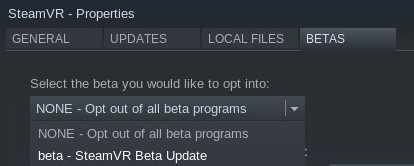
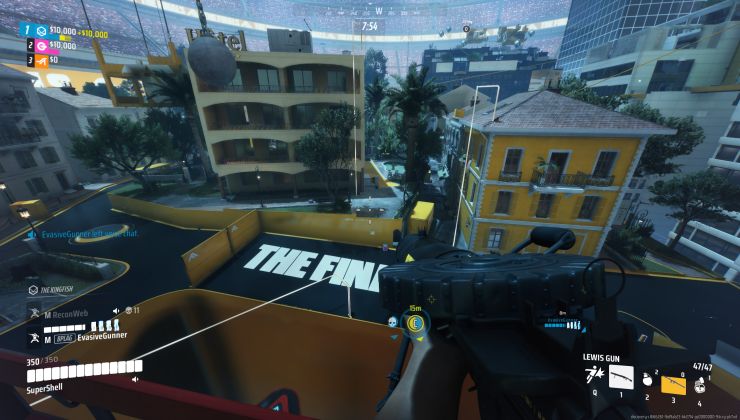
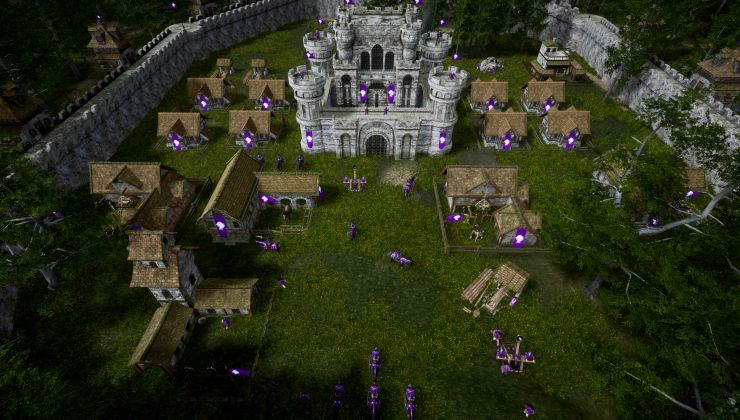
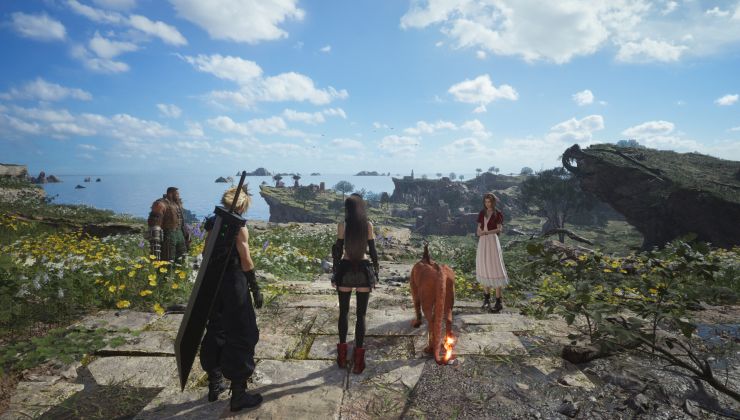
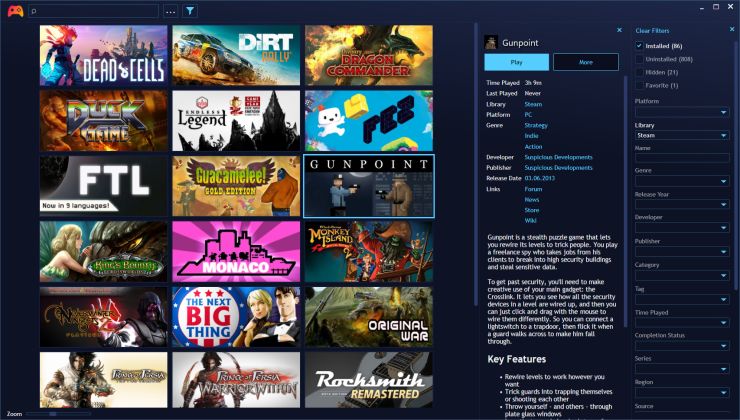






 How to set, change and reset your SteamOS / Steam Deck desktop sudo password
How to set, change and reset your SteamOS / Steam Deck desktop sudo password How to set up Decky Loader on Steam Deck / SteamOS for easy plugins
How to set up Decky Loader on Steam Deck / SteamOS for easy plugins
See more from me